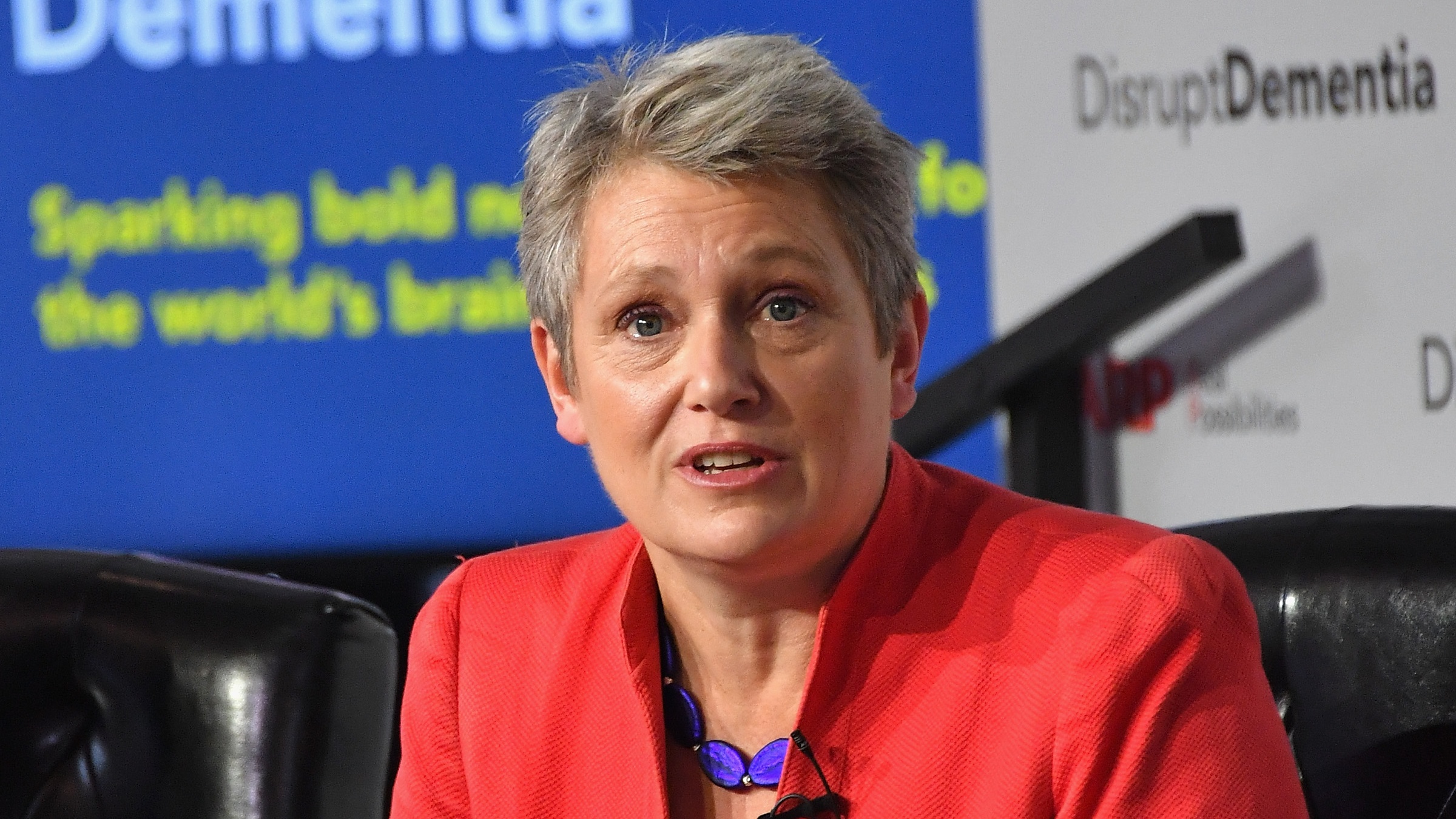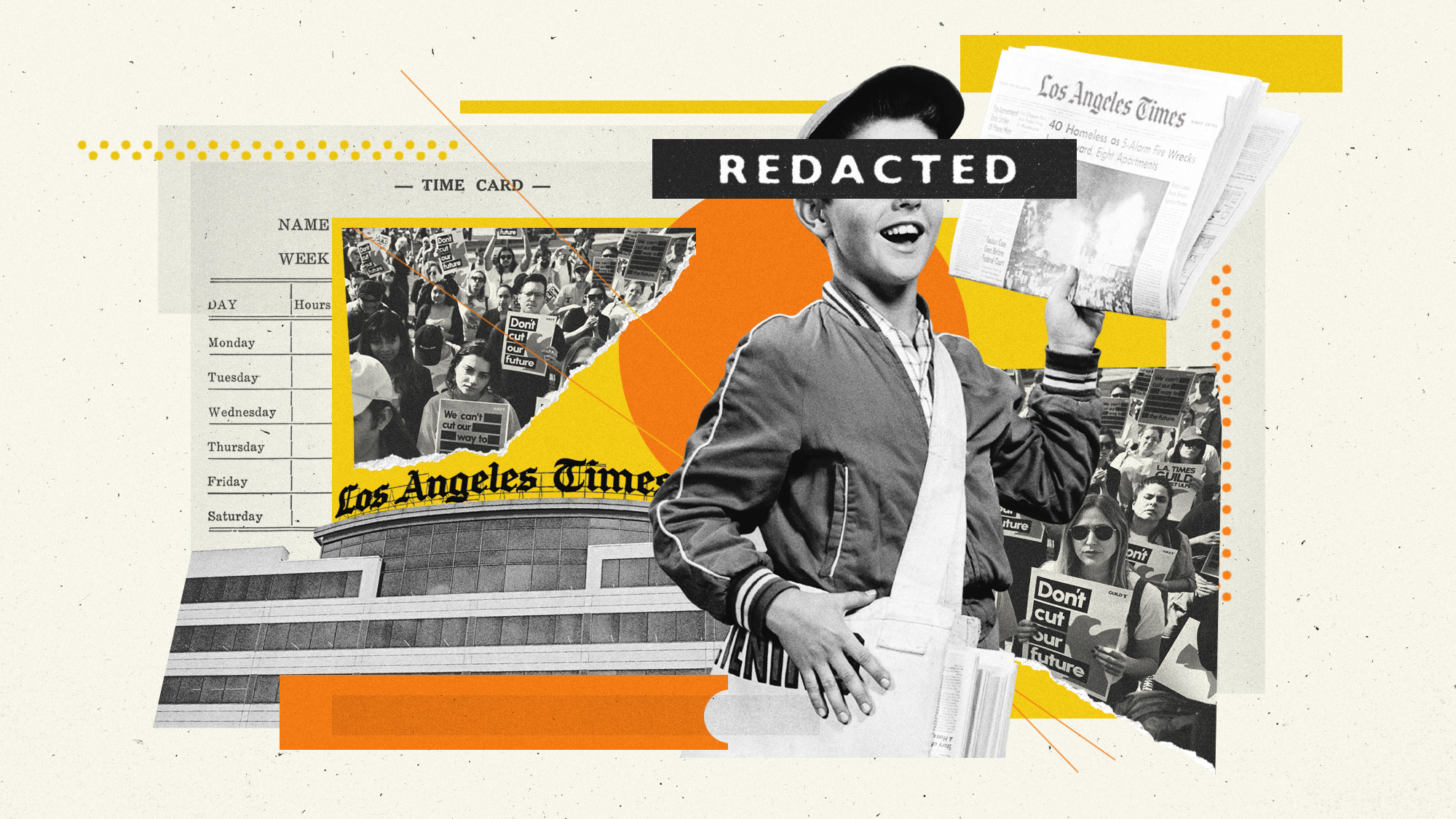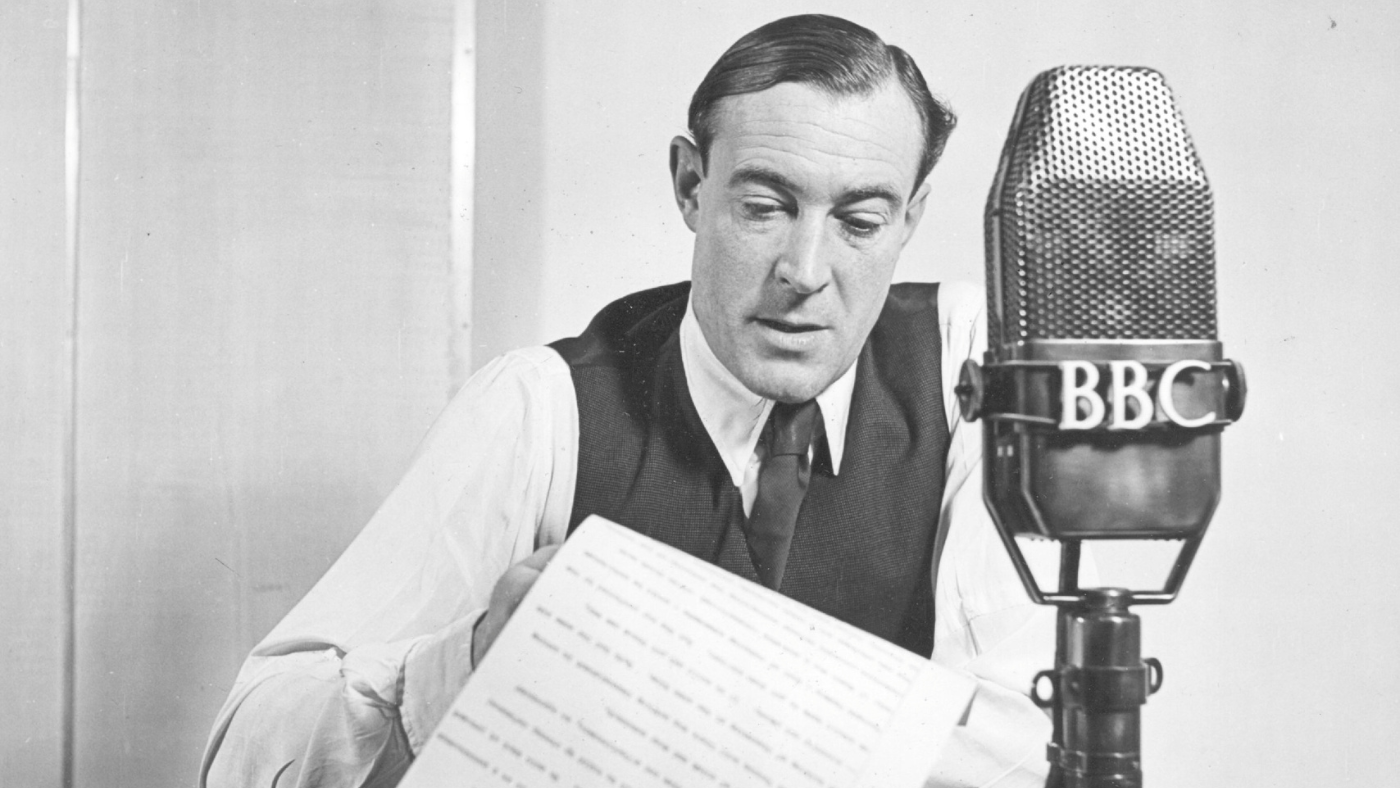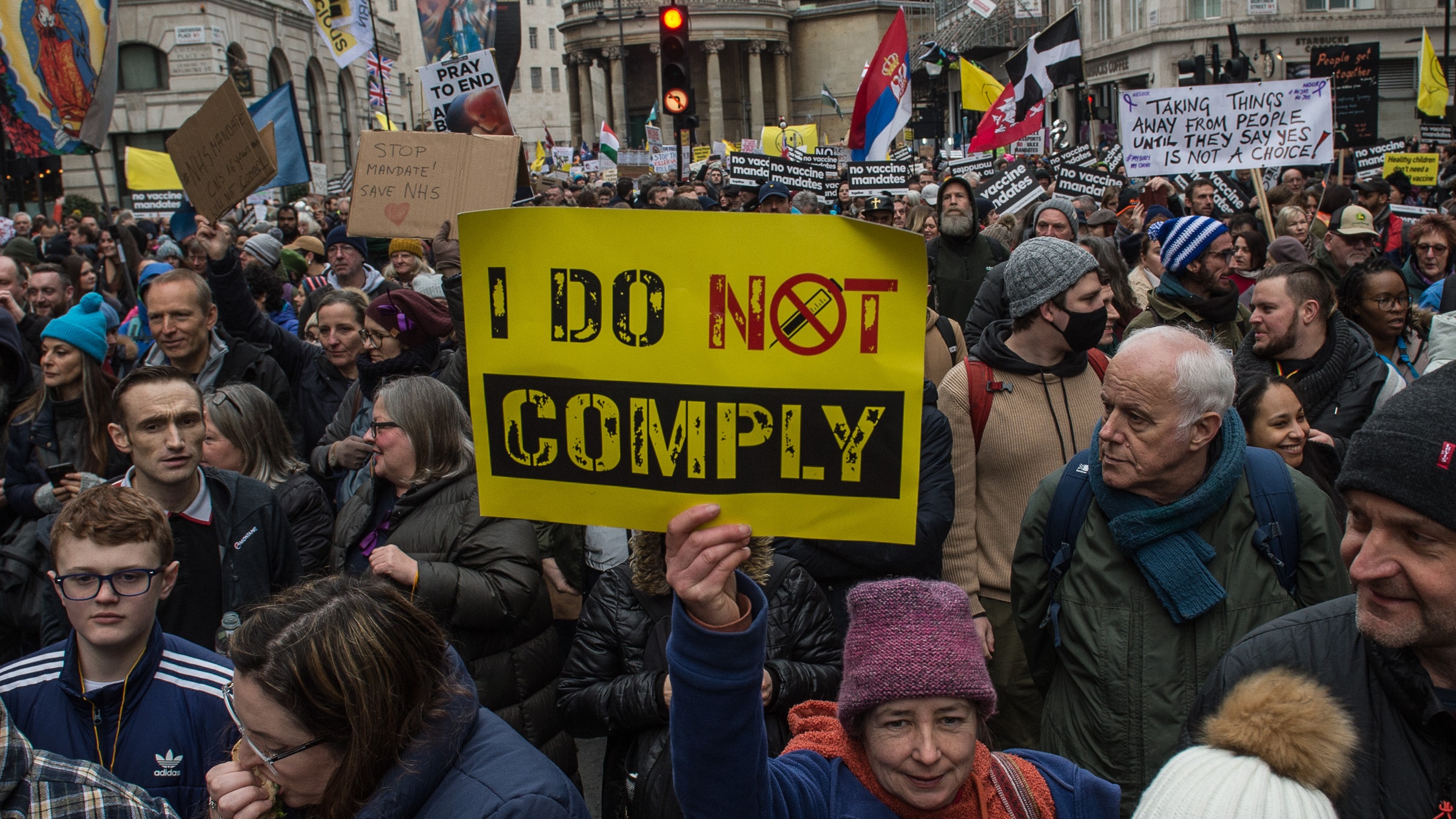Does the media owe UK vaccine tsar Kate Bingham an apology?
Her appointment by Boris Johnson triggered cronyism claims - but success of Covid jabs rollout is silencing critics

A free daily email with the biggest news stories of the day – and the best features from TheWeek.com
You are now subscribed
Your newsletter sign-up was successful
“The instruction I was given by the prime minister was to save lives as soon as possible, so we had a very clear goal.”
In a newly published interview, Kate Bingham describes the challenge she was handed by Boris Johnson after being appointed last May as chair of the government’s Covid vaccine taskforce.
But while her task was clear - find the right vaccines and make sure the UK secures enough doses - critics outside of Downing Street claimed the circumstances surrounding her appointment were murky. Her marriage to Tory MP Jesse Norman gave rise to cronyism allegations, while her background in venture capitalism triggered suggestions that Bingham was not qualified for a government role.
The Week
Escape your echo chamber. Get the facts behind the news, plus analysis from multiple perspectives.

Sign up for The Week's Free Newsletters
From our morning news briefing to a weekly Good News Newsletter, get the best of The Week delivered directly to your inbox.
From our morning news briefing to a weekly Good News Newsletter, get the best of The Week delivered directly to your inbox.
Ten months on, however, the UK is among the countries leading the race to vaccinate populations - a success that is silencing the doubters.
‘Cronyism and incompetence’
The initial flurry of allegations against Bingham were followed by a fresh onslaught in November, when The Sunday Times reported that she was “facing calls to resign after disclosing ‘official sensitive’ government documents to a $200-a-head conference in America”.
Bingham had “spent an hour explaining the government’s strategy” at the event, said the paper, which noted that the vaccine tsar was “a venture capitalist” who was appointed “despite having no vaccines expertise”.
A free daily email with the biggest news stories of the day – and the best features from TheWeek.com
A separate editorial in The Sunday Times asked whether it was “time to go back to experts”.
“People from the private sector have a great deal to contribute, but they have to be the right people who know what they are doing”, the editorial continued. “Otherwise, it is simply a descent into cronyism.”
The government swiftly issued a statement defending Bingham and dismissing any suggestions that she had shared sensitive data. “Kate Bingham focused on publicly available information and said little that expert delegates at the conference could not deduce themselves,” the statement said.
All the same, wrote former Commons official Eliot Wilson in an article for City A.M., while it is “rare that officials from government agencies become household names”, both Bingham and test-and-trace boss Dido Harding had become “bywords for incompetence and cronyism”.
Many fellow government officials were also slow to warm to Bingham. The Guardian’s Whitehall correspondent Rajeev Syal reported that “given her background in the no-nonsense world of venture capitalism”, few of her new colleagues “were surprised at Bingham’s ability to make enemies as well as friends”.
A Whitehall source told the paper: “She is obviously very talented, she speaks her mind and gets straight to the point, but has frustrated a lot of people at the department. She is used to doing things quickly and without bureaucratic bullshit.
“But she also doesn’t tell people at all times what she is up to. It means that others are having to pick up the pieces behind her.”
Labour also went on the attack following the conference allegations, calling on the Cabinet Office to carry out an “urgent and swift investigation” into her spending.
And Liberal Democrat leader Ed Davey was even more scathing. “Someone from the Tory clique wastes money, provides no useful function, gets caught and then Boris Johnson does nothing about it,” Davey told the Daily Mirror. “Kate Bingham must resign.”
Vaccine vindication?
Back in November, there was political capital to be made from calling for Bingham to step down. But those calls have now become noticeably quieter, as the UK races ahead in third place in the global race to inoculate populations against the coronavirus, trailing only Israel and the United Arab Emirates.
In a newly published interview with Italian paper La Repubblica, a triumphant Bingham says: “I’m a venture capitalist in my whole job, I've spent all my life building companies, developing new pharmaceuticals.
“So my whole job has always been: look at science, look at data, and then decide what the risks are. The fact that I've been in the industry for 30 years, and the team that I work with have been in the industry at least as long, if not longer, meant that we had connections very broadly across the industry.”
Her “quick and nimble” team used those connections to sign contracts early to secure vaccines, paving the way for a swift rollout, she said.
As Business Insider notes, the taskforce had “rejected the chance to join the EU's vaccine-buying bloc”, a decision that enabled the UK to avoid the jab procurement delays that have since dogged the EU27.
Critics have suggested that the EU push may have been slowed by efforts to ensure pharma firms accept tough liability terms - the lack of which might leave the UK government vulnerable if vaccines went wrong. But Bingham has downplayed that fear, telling La Repubblica: “I don't think our liability claims would be very different from what the Europeans have agreed to.”
According to government documents, the UK has so far signed deals to secure a total of 407 million doses of Covid vaccine from seven developers. This many doses would be sufficient to vaccinate the population six times over, so Bingham’s team are now looking at which countries should be first to receive the surplus supplies.
Asked how she handled the pressure of fronting the high-stakes vaccines campaign, Bingham told the Italian newspaper that “it’s like any investment”.
But while she may measure her success by other criteria, media coverage of her performance has changed too. As the Daily Mail labels her “the brilliantly batty heroine of our jabs triumph”, the resignation calls of last year are now just a distant memory.
Joe Evans is the world news editor at TheWeek.co.uk. He joined the team in 2019 and held roles including deputy news editor and acting news editor before moving into his current position in early 2021. He is a regular panellist on The Week Unwrapped podcast, discussing politics and foreign affairs.
Before joining The Week, he worked as a freelance journalist covering the UK and Ireland for German newspapers and magazines. A series of features on Brexit and the Irish border got him nominated for the Hostwriter Prize in 2019. Prior to settling down in London, he lived and worked in Cambodia, where he ran communications for a non-governmental organisation and worked as a journalist covering Southeast Asia. He has a master’s degree in journalism from City, University of London, and before that studied English Literature at the University of Manchester.
-
 What to know before filing your own taxes for the first time
What to know before filing your own taxes for the first timethe explainer Tackle this financial milestone with confidence
-
 The biggest box office flops of the 21st century
The biggest box office flops of the 21st centuryin depth Unnecessary remakes and turgid, expensive CGI-fests highlight this list of these most notorious box-office losers
-
 The 10 most infamous abductions in modern history
The 10 most infamous abductions in modern historyin depth The taking of Savannah Guthrie’s mother, Nancy, is the latest in a long string of high-profile kidnappings
-
 Why is the Pentagon taking over the military’s independent newspaper?
Why is the Pentagon taking over the military’s independent newspaper?Today’s Big Question Stars and Stripes is published by the Defense Department but is editorially independent
-
 Is the first AI ‘actor’ the beginning of Hollywood’s existential crisis?
Is the first AI ‘actor’ the beginning of Hollywood’s existential crisis?Today's Big Question 'Tilly Norwood' sparks a backlash
-
 Will AI porn transform adult entertainment – and is that a good thing?
Will AI porn transform adult entertainment – and is that a good thing?Today's Big Question The possibility of 'unprecedented interactivity and realism' must be weighed against legal and ethical concerns
-
 Are the LA Times layoffs indicative of a bigger problem in media?
Are the LA Times layoffs indicative of a bigger problem in media?Today's Big Question The newspaper could be the latest in what will be a continuing trend of culling at media companies
-
 BBC at 100: what does the future hold for at-threat institution?
BBC at 100: what does the future hold for at-threat institution?Today's Big Question The British Broadcasting Corporation is facing looming funding cuts amid digital ‘transformation’ of media
-
 The conspiracy theorists cashing in on YouTube’s algorithms
The conspiracy theorists cashing in on YouTube’s algorithmsIn the Spotlight One anti-vaccination campaigner nets £500,000 a year from advertising on video platform
-
 Why Harry and Meghan’s Oprah interview is the ‘final straw’ for Royal Family
Why Harry and Meghan’s Oprah interview is the ‘final straw’ for Royal FamilyToday's Big Question Buckingham Palace reportedly blindsided by exclusive sit-down with chat show host
-
 When will the world run out of new movies and TV shows?
When will the world run out of new movies and TV shows?In Depth Entertainment industry in crisis as coronavirus pandemic brings filming to a halt worldwide